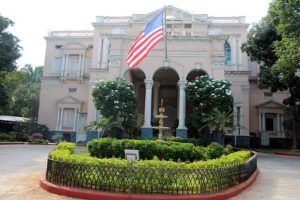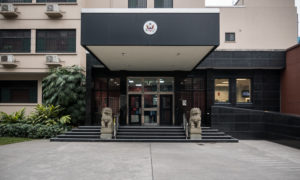According to the Institute of International Education, some 886,052 foreign students were enrolled in U.S. schools during the 2013-14 school year — more than the number of foreign students enrolled in any other country in the world. In addition to being a pool of potential innovators, scientists, businessmen, etc., foreign students are of great economic importance to the U.S. In 2013 alone, foreign students contributed some $27 billion to the U.S. economy. However, inflexible and outdated laws may be prompting many of these students to leave the U.S. soon after graduation and take their valuable skills elsewhere.
Currently, student (F-1) visas allow foreign students to remain in the U.S. for just 12 months after graduation. For students who have studied in STEM (science, technology, engineering, math) fields this is extended to a total of 29 months after graduation; this may be why a disproportionately high amount of foreign students study in STEM and business compared to U.S. students overall. Once this period is over, students must leave the U.S. within 60 days. Many students apply for H-1B (temporary work visas), but the chances of obtaining an H-1B visa is quite low. Since 2005, the number of H-1B visas available has been capped at 85,000 per year, which is woefully inadequate considering that some 233,000 H-1B applications were submitted this year.
Recently, executive actions by President Obama have proposed to make some important changes. This includes allowing more degrees into the STEM category (which would allow more foreign students to remain in the U.S. for a longer period of time after graduation), extending the maximum time allowed on Optional Practical Training (OPT) programs that many students pursue after graduation, allowing individuals on H-1B visas to change jobs or get promoted with fewer restrictions, and providing more options for outstanding foreign investors, researchers, and founders of businesses to establish themselves in the United States. One change proposed by President Obama has already been implemented, namely the new regulations (effective since May 26 of this year) allowing spouses of H-1B visas to apply for employment authorization. These are positive steps in the right direction, but there remains much to be done in order to ensure that skilled and talented foreign students are given effective incentives and opportunities to remain in the U.S. after completing their education.



